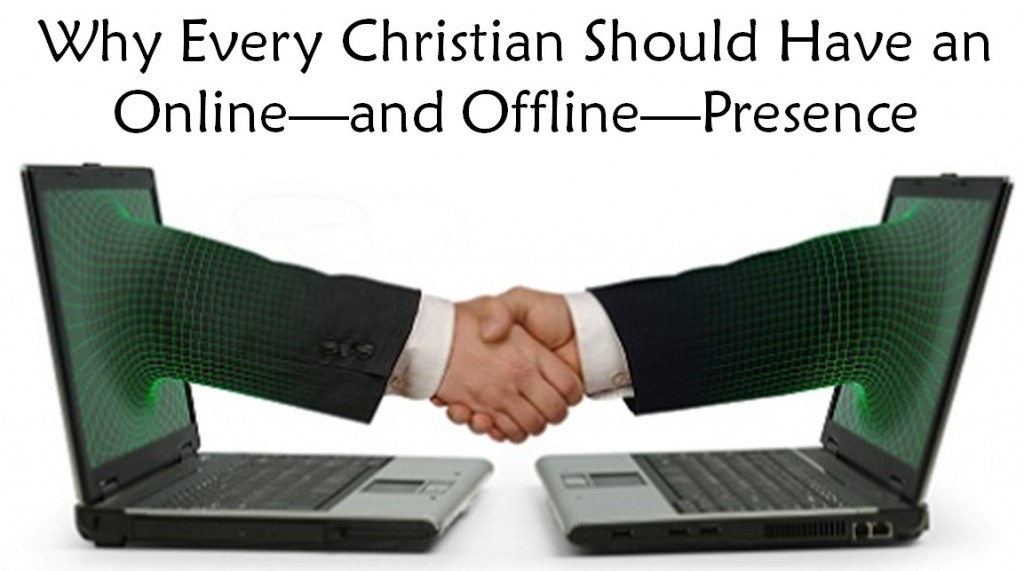Why Every Christian Should Have an Online–and Offline–Presence
[Note: Today’s post has a lot of links in it. Some are to our own stuff, but not all of them. We wanted to “share the love” with some who are doing great things online. So, as you have a moment, click through and see how people are using many different tools to teach and encourage.]
We live in the digital age. From websites to YouTube channels to the world of hashtags that is Twitter, we are inundated with information, entertainment, and social connections at a seemingly never-ending pace. With information shared visually on Pinterest and vlogs, comments flying on websites and message boards, and “likes” climbing on Facebook, interaction has never been higher.
Obviously, I believe in having an online presence. We have been blogging for a long time now, and have slowly gained a few readers. Over the time, we have also added the Faughn Family Podcast, and made sure we used (and enjoyed) social media.
With the number of people using the Internet soaring to almost unthinkable numbers, I believe that every Christian who uses the Internet for any purpose should strive to have an online Christian presence. That doesn’t mean you have to start a blog, although it could. But if we are going to strive to reach people with the Gospel, we must be where people are. And people are online.
So, use your talents. Maybe it is simply quoting verses that encourage people on your Facebook page. Maybe you can create images that bring glory to God and post them on Pinterest or Instagram. Maybe you can start a blog (or vlog) and build up a few loyal readers every few days. Maybe it’s time you started a podcast that would encourage people. Maybe it’s sending favorite links or encouraging quotes through Twitter or developing a regular email newsletter that teaches the Gospel.
The key is to be a Christian in any and every instance. When we are constantly and consistently following the example of Jesus online, and pointing people to Him, they will take notice. You don’t have to have a large following, either. Just encouraging your Facebook friends or a couple dozen Twitter followers makes a difference.
However…
If we are not careful, we can be so caught up in our online presence that we forget to have an offline presence!
People need to see you face-to-face and you need to interact with people in person to encourage them as well. The problem with having a “following” online is that it becomes easy to just hide behind the keyboard and never talk to someone face-to-face. It is also easy to put on a Christian face on our Twitter profile, but be something totally different on the ball field or when I’m talking politics with my friends over coffee.
Jesus taught us to be “salt” and “light,” but both of those require us to be in contact with people.
We can flood the world with encouragement and information through the online, but it is the offline that will show people the true depth of our commitment and faith.
QUESTION: Do you struggle with this online/offline dynamic? Share your thoughts in the comments.
———————
NOTE: Since relaunching our blog a few months ago with a new design, the one complaint we got was that the site was “too busy.” With that in mind, we have tried to keep the basic format, but make the blog a little more streamlined. Take a look around and let us know what you think. Also, we are making a true effort to build up our email list. Check out the upper right-hand corner to sign up for free!
Photo credit: Garfield Anderssen on Creative Commons
So Many Ways to Connect with Us!
Subscribe via email (and get a free eBook).
Get our free monthly newsletter (and a free eBook)
Listen to our podcast on iTunes



